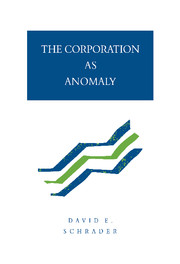Book contents
- Frontmatter
- Contents
- Preface
- Introduction
- 1 The hidden change in economic theory
- 2 Four views of scientific change
- 3 A glance at the history of economic theory
- 4 Agreement and disagreement within the tradition
- 5 Theories of the firm
- 6 Confusions and problems with the marginalist view
- 7 The shape of the large managerial corporation
- 8 The theoretical impact of a better theory of the firm
- Notes
- Bibliography
- Index
Introduction
Published online by Cambridge University Press: 10 December 2009
- Frontmatter
- Contents
- Preface
- Introduction
- 1 The hidden change in economic theory
- 2 Four views of scientific change
- 3 A glance at the history of economic theory
- 4 Agreement and disagreement within the tradition
- 5 Theories of the firm
- 6 Confusions and problems with the marginalist view
- 7 The shape of the large managerial corporation
- 8 The theoretical impact of a better theory of the firm
- Notes
- Bibliography
- Index
Summary
There is perhaps nothing in U.S. society that is both more pervasive and yet less understood than the business corporation. In popular discussion of the modern business corporation the loudest voices seem to assume an almost religious fervor. The detractors, or “corporation beaters,” see the corporation as something akin to the devil incarnate in the modern world. They see the business corporation as the new leviathan, a huge, artificially created monster, trampling all in its path – people, environment, political institutions, and so on – showing no regard for anything beyond its own insatiable appetite for money and power. On the other side of the debate we see an almost religious devotion to the corporation. It is viewed as the master creation of modern society, a vehicle by which human society has become capable of creative power never before imagined, the natural outgrowth of the marvelous market mechanism whose “invisible hand” coordination of human economic activity guarantees both the highest possible level of production and the most optimal patterns of distribution and allocation.
Unfortunately, all the impassioned pleas that we hear in the public forum about “protecting people and the environment from the giant corporations” or about “getting the government off business's back” fail to reflect an understanding of the modern business corporation matching their passion. These pleas serve relatively little purpose. Understanding the corporation, however, is crucial for the well–being of contemporary society. No amount of corporation beating will make the large business corporation go away. Corporations have become a thoroughly established part of our social and economic environment.
- Type
- Chapter
- Information
- The Corporation as Anomaly , pp. 1 - 9Publisher: Cambridge University PressPrint publication year: 1993



